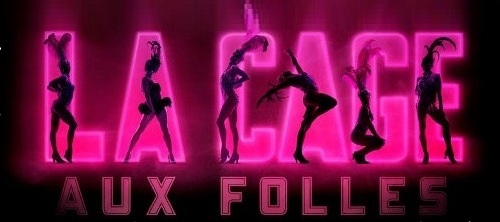
Based on the 1973 French play of the same name by Jean Poiret, it focuses on a gay couple: Georges, the manager of a Saint-Tropez nightclub featuring drag entertainment, and Albin, his romantic partner and star attraction, and the farcical adventures that ensue when Georges's son, Jean-Michel, brings home his fiancée's ultra-conservative parents to meet them.
The original 1983 Broadway production received nine nominations for Tony Awards and won six, including Best Musical, Best Score and Best Book.
A Saint-Tropez, Georges et Albin dirigent la boîte de nuit à la mode, "La Cage aux Folles", où Albin se produit en travesti sous le nom de Zaza. Tout irait pour le mieux dans leur couple si le fils de Georges (le fruit d'une ancienne liaison hétérosexuelle) ne leur annonçait son mariage prochain avec la fille d'un leader politique conservateur et... anti-gay. Albin, trop "flamboyant", devient soudain indésirable... Mais tout est bien qui finit bien dans cette comédie : le fils épouse sa dulcinée et le couple Georges-Albin sort renforcé de l'épreuve... non sans avoir joué un tour bien mérité au politicien !
La cage aux folles est une comédie musicale traditionnelle sur un sujet qui ne l'était pas à l'époque : les homos. Le traitement humoristique (comme dans la pièce originale de Poiret) et le propos - jamais appuyé - ne se veulent pas ouvertement militants mais assènent quelques vérités bien senties. "I Am What I Am" ("Je suis comme je suis) chante Albin plutôt que d'accepter de mentir à ceux qui l'aiment... et aux autres.
1 Cage aux Folles (La) est un musical abordant de manière centrale l'homosexualité.
Based on the 1973 play of the same name by Jean Poiret.
Allan Carr, who had produced the successful film adaptation of Grease (1978), was eager to work in theatre and thought a musical version of the hit 1978 film La Cage aux Folles would be an ideal vehicle for his Broadway debut. However, he was unable to secure the rights to the film and was forced to settle for the rights to the original play only. Carr hired Jay Presson Allen to write the book and Maury Yeston to compose the score for The Queen of Basin Street, an Americanized version set in New Orleans. With Mike Nichols set to direct and Tommy Tune on board as choreographer, Carr searched for executive producers and found them in Fritz Holt and Barry Brown, who immediately fired the entire creative team that Carr had assembled. All of them eventually filed lawsuits, but Yeston alone won and later collected a small royalty from La Cage.
Holt and Brown had produced the 1974 revival of Gypsy directed by Arthur Laurents, and they approached him with an offer to direct their new venture. Laurents was not a fan of drag or camp entertainment and thought Holt and Brown never would find enough investors to finance a gay-themed project at a time when, during the early years of the AIDS epidemic, homophobia was more intense than ever. He agreed only because Holt and Brown were close friends and he wanted them to remain on Carr's payroll as long as possible, but his interest grew when he learned Harvey Fierstein and Jerry Herman had committed to the project.
According to Laurents, when he met with Fierstein and Herman for the first time, they had restored both the title and locale of the original play but had neither a script nor even an outline for the plot. All they had was the Herman song "I Am What I Am," and Laurents immediately envisioned it as an emotional outburst sung at the close of the first act. Laurents further claims that when he explained his concept to Fierstein and Herman, he inspired the direction they took in writing the musical.[6] Herman tells a very different story in an interview included in the original cast CD. He claims that they were well into the collaboration when Fierstein arrived one day with an emotional fiery scene he had written for the end of Act I that included the words "I am what I am." Delighted, Herman asked to use the five words, boasting he would have a song by morning, which he did. With gay-activist Fierstein and the political Laurents on board, the show could have "become a polemic diatribe on gay rights." However, Herman was a moderating influence. Having suffered a series of disappointments with darker-themed shows since 1969, he was eager to score a hit with a mainstream, emotional, optimistic song-and-dance entertainment that middle-class audiences would enjoy. The team opted to create "a charming, colorful, great-looking musical comedy - an old-fashioned piece of entertainment," as Herman recalled in his memoir Showtune. By "delivering their sentiments in a sweetly entertaining manner", the team was able to convey their gay-themed message with more impact than they could have with a more aggressive approach.
Fierstein, Herman and Laurents met daily in Herman's Manhattan townhouse to work on the musical. Because they were limited to using only the Poiret play as a source, they were unable to include the character of Jean-Michel's birth mother, who had been created for the film. They focused the plot on the fact that the relationship of Georges and Albin seems so natural that the boy is able to accept a man as his "mother". The three men agreed that Albin needed to be as glamorous an entertainer as possible, and Theoni V. Aldredge was hired as costume designer to achieve their goal.
The producers agreed to a Boston tryout, and just prior to the second preview (the first was cancelled due to problems with the mechanized set), Herman had a panic attack prompted by his fear that the city probably was too conservative to embrace a gay-themed musical, albeit one designed for a mainstream audience. The Boston crowds gave the show an enthusiastic reception. Fierstein, Herman and Laurents were also concerned that this was essentially a love story in which the lovers barely touched each other. Fierstein suggested they kiss on the cheeks at the end, and Laurents, citing the common custom of French men kissing each other on both cheeks, agreed.
George Hearn as Albin had the showier role and all the big musical numbers. His character was fully drawn, and behind the drag performer, the audience could see "a person driven to take a stand for himself – a notion that all people could relate to." In contrast, during rehearsals, everyone had supported firing Gene Barry, who was considered adequate but never outstanding as Georges, but finding a replacement proved to be difficult. Finally, just before opening night, Laurents directed him always to look into Hearn's eyes, whenever the two men were on stage, so the audience would sense the depth of the couple's feelings for each other. The director also had Georges introduce the various club acts with more of a flourish, "like an aria that will land like a musical number." Both of these last-minute stage directions enabled Barry to get a better grasp of his character.
According to theatre historian John Kenrick, La Cage aux Folles helped make the 1983 Broadway season an especially strong one. He noted that following La Cage and Big River in 1985, for "the first time since Oklahoma, a full decade would go by before a new American musical would pass the 1,000-performance mark."
Original Broadway production)
La Cage aux Folles opened on Broadway at the Palace Theatre on August 21, 1983. It was directed by Arthur Laurents and choreographed by Scott Salmon, with set design by David Mitchell, costume design by Theoni V. Aldredge, and lighting design by Jules Fisher. The original Broadway cast included Gene Barry as Georges and George Hearn as Albin, with John Weiner as Jean-Michel, Walter Charles as M. Renaud, Jay Garner as Edouard Dindon, Merle Louise as Mme. Dindon, Elizabeth Parrish as Jacqueline, Leslie Stevens as Anne, and William Thomas, Jr. as Jacob. Among the replacement performers who appeared in La Cage aux Folles during its original Broadway run were Walter Charles, Keene Curtis, Van Johnson, Peter Marshall, Keith Michell and Lee Roy Reams. The original production received nine Tony Award nominations, winning a total of six including Best Musical, Best Original Score and Best Book of a Musical. The show beat several strong competitors in many categories, including Stephen Sondheim's Sunday in the Park with George. It also won three Drama Desk Awards. The production ran for four years and 1,761 performances, closing on November 15, 1987. After the great success of the production's opening night, Herman felt vindicated. He "had nothing else to prove" to his critics and "vowed never to write another show for Broadway".
Original London production
The show had its West End premiere at the London Palladium on May 7, 1986 with the same creative team as the Broadway production. Hearn transferred with the production, which was made possible through an agreement with the American and British actors' unions, allowing him to come over in exchange for Robert Lindsay appearing in Me and My Girl on Broadway. The production also starred Denis Quilley as Georges, Jonathon Morris as Jean-Michel, Richard Owens as M. Renaud, Brian Glover as Edouard Dindon, Julia Sutton as Mme. Dindon, Phyllida Law as Jacqueline, Wendy Roe as Anne, Donald Waugh as Jacob and Martin J Barker as Chantal. The show closed in London after 301 performances. Its short run and financial failure were partly blamed on the AIDS crisis, and producers were uncomfortable about portraying gay lives onstage quite so openly in mainstream musicals for some time afterwards.
2004 Broadway revival
The first Broadway revival opened at the Marquis Theatre, beginning previews on November 11, 2004, with an official opening on December 9, 2004. The production team included Jerry Zaks as director, Jerry Mitchell as choreographer, Scott Pask, Donald Holder and William Ivey Long as designers. The cast included Gary Beach as Albin, Daniel Davis as Georges, Gavin Creel as Jean-Michel, Merwin Foard as M. Renaud, Michael Mulheren as Edouard Dindon, Linda Balgord as Mme. Dindon, Ruth Williamson as Jacqueline, Angela Gaylor as Anne, and Michael Benjamin Washington as Jacob. Robert Goulet replaced Davis as Georges on April 15, 2005 and played the role until the production closed. Reviews for the production were mixed, with The New York Times stating that it "often gives the impression of merely going through the motions, amiably but robotically, of its gag-laden, sentimental plot", yet praised Les Cagelles, who "bring acrobatic oomph and angularity to centerpieces that include an aviary of exotic, back-flipping birds and a vigorous Montmartre-style can-can. As long as the Cagelles are doing their thing, your attention stays thoroughly engaged". The revival won numerous Tony and Drama Desk awards. The production closed on June 26, 2005. Ticket sales for the show had not increased after winning the Tony Award, and the show had been consistently selling at less than 60% capacity in the months prior to closing.
2008 London revival
A scaled-down London revival, starring Philip Quast and Douglas Hodge opened at the Menier Chocolate Factory on January 8, 2008, and played there until March 8, 2008. The cast also included Neil McDermott, Iain Mitchell and Una Stubbs, with direction by Terry Johnson and choreography by Lynne Page. The production had originally been scheduled to open in December 2007, but it was delayed twice due to illness within the cast. By the time the production officially opened, all remaining performances had sold out. The show opened to mostly positive press with particular praise for Hodge's performance as Albin.
The Menier Chocolate Factory production transferred to the West End on October 20, 2008 at the Playhouse Theatre co-produced with Sonia Friedman Productions, Robert G. Bartner, David Ian Productions, The Ambassador Theatre Group and Jamie Hendry Productions. It was initially advertised as a "Strictly Limited 12 Week Season", although this became open-ended due to its success. Hodge reprised his role as Albin, joined by Denis Lawson as Georges.[30] The cast also included Iain Mitchell as M Renaud/Edouard Dindon, Paula Wilcox as Mme. Ranaud/Mme. Dindon and Tracie Bennett as Jacqueline. The production gathered rave reviews, with high praise again for Hodge and Les Cagelles. Whatsonstage.com commented: "A great Broadway show has been re-born as a classic musical comedy with real punch and pizzazz." Michael Billington of The Guardian reported that the show had improved with its transfer to the West End from the Menier Chocolate Factory. The 2008 West End cast appeared as a guest act for the Royal Variety Performance 2008, staged at the London Palladium on December 11, 2008, in the presence of senior members of the Royal family The production won the Laurence Olivier Award for Best Musical Revival, and Hodge won for Best Actor, out of a total of seven nominations. The roles of Albin and Georges have been re-cast in London every three months with well-known actors to keep the production fresh and public interest high. Television personality Graham Norton took over the role of Albin on January 19, 2009, alongside Steven Pacey as Georges. They were succeeded on May 4, 2009, by theatre veterans Roger Allam as Albin and Philip Quast reprising his role of Georges from the Menier Chocolate Factory. From September 12, 2009, until November 28, 2009, John Barrowman and Simon Burke played the roles of Albin and Georges respectively.[35] Douglas Hodge as Albin and Denis Lawson as Georges returned to the production from 30 November 2009, until the production closed on January 2, 2010.
2010 Broadway revival
A transfer of the 2008 London revival to Broadway began previews at the Longacre Theatre on April 6, 2010, and officially opened on April 18, 2010. Johnson and Page direct and choreograph. Douglas Hodge reprises the role of Albin. Kelsey Grammer stars as Georges, in his debut in a Broadway musical (he has previously performed Shakespeare on Broadway). The set design is by Tim Shortall, costumes by Matthew Wright, lighting by Nick Richings, and scaled down eight-player orchestrations by Jason Carr. The production received positive reviews, many praising the scaled-down nature of the production and the performances of newcomers Douglas Hodge and Kelsey Grammer as Albin and Georges. Besides Grammer and Hodge, the cast features A.J Shively in his Broadway debut as Jean-Michel, Robin de Jesus as Jacob, Fred Applegate as M. Renaud/M. Dindon, Veanne Cox as Mme. Renaud/Mme. Dindon, Christine Andreas as Jacqueline and Elena Shaddow as Anne. The Cagelles include Nick Adams, Logan Keslar, Sean Patrick Doyle, Nicholas Cunningham, Terry Lavell and Yurel Echezarreta. The production received 11 Tony Award nominations and won Best Musical Revival, Best Actor in a Musical (Douglas Hodge) and Best Direction of a Musical. A cast recording of the revival was made by PS Classics and was released on September 28, 2010. The production closed on May 1, 2011, after 433 performances and 15 previews.
Acte I
Prelude - Orchestra
We Are What We Are – Les Cagelles
(A Little More) Mascara – Albin and Les Cagelles
With Anne on My Arm – Jean-Michel and Georges
With You on My Arm – Georges and Albin
The Promenade –Townspeople
Song on the Sand – Georges
La Cage aux Folles – Albin, Jacqueline, and Les Cagelles
I Am What I Am – Albin
Acte II
Song on the Sand (Reprise) – Georges and Albin
Masculinity – Georges, Albin, Monsieur Renaud, Madame Renaud, and Tabarro
Look Over There – Georges
Dishes (Cocktail Counterpoint) – Georges, Edouard Dindon, Mme. Dindon and Jacob
The Best of Times – Albin, Jacqueline, and Company
Look Over There (Reprise) – Jean-Michel
Finale– Company
Albin – The star of the La Cage club as drag queen "Zaza."
Georges – Albin's partner, and owner of La Cage, as well as compère.
Jacob – Butler (or housemaid), and Albin's personal assistant.
Jean-Michel – Georges's son from a short-lived affair twenty years ago.
Anne Dindon – Jean-Michel's fiancée.
Monsieur Edouard Dindon – Anne's father, and leader of the Tradition, Family and Morality Party.
Madame Marie Dindon – Edouard's wife and Anne's mother.
Jaqueline – Albin's friend and the owner of classy restaurant, "Chez Jaqueline."
Monsieur and Madame Renaud – Owners of the Promenade Café.
Les Cagelles – The drag performers at La Cage who are background performers for Zaza (Albin).
Aucun dossier informatif complémentaire concernant Cage aux Folles (La)
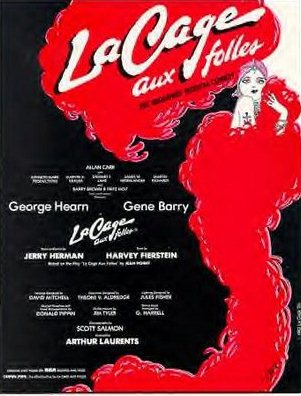
Version 1
Cage aux Folles (La) (1983-08-Palace Theatre-Broadway)
Type de série: OriginalThéâtre: Palace Theatre (Broadway - Etats-Unis) Durée : 4 ans 2 mois 3 semaines Nombre : 15 previews - 1761 représentationsPremière Preview : mardi 09 août 1983Première : dimanche 21 août 1983Dernière : samedi 14 novembre 1987Mise en scène : Arthur Laurents • Chorégraphie : Scott Salmon • Producteur :
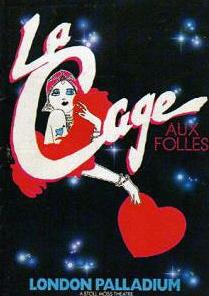
Version 3
Cage aux Folles (La) (1986-05-London Palladium-Londres)
Type de série: RevivalThéâtre: Palladium Theatre (Londres - Angleterre) Durée : 8 mois 4 semaines Nombre : 301 représentationsPremière Preview : InconnuPremière : mercredi 07 mai 1986Dernière : samedi 31 janvier 1987Mise en scène : Arthur Laurents • Chorégraphie : Scott Salmon • Producteur : Avec : Denis Quilley (Georges), George Hearn (Albin), Jonathan Morris (Jean-Michel), Wendy Roe (Anne), Brian Glover (Edouard Dindon), Julia Sutton (Mme Dindon), Phyllida Law (Jacqueline), Donald Waugh (Jacob)Commentaires : Based on the 1973 play by Jean Poiret, this was a huge risk - Broadway’s first ever gay musical. The first-night audience seemed a little shocked by the opening chorus of transvestite Cagelles, but dutifully applauded. Then came the crunch: a “love scene” between two men, Georges and Albin – openly expressed with physical contact. There were nervous titters. It was dicey, but George Hearn and Gene Barry played as though they were alone with their love. And then Gene sang, so simply, so truly, a love ballad. The audience cheered and applauded.
They were applauding the song, of course, but this applause was an historical moment in musical theatre history. This was the very moment when a gay relationship was accepted on equal terms with every other boy-girl relationship in the world of musical comedy. More followed when, at the end of the first act, Albin, dressed as a drag queen, sang “I Am What I Am”. If he was scared, he didn’t show it. In the wings the whole company was in tears. Much of the audience was in tears. This was another historical moment: a plea for tolerance and liberation, and one that didn’t fall on deaf ears. Broadway’s first “gay musical” turned out to be a 1,176 performance mega-hit.
And yet the London production ran just nine months: the gay bits were not going to shock a London audience. London had seen it all before.

Version 4
Cage aux Folles (La) (1988-09-Paper Mill Playhouse-Milburn)
Type de série: RevivalThéâtre: Paper Mill Playhouse (Milburn - Etats-Unis) Durée : 1 mois 1 semaine Nombre : Première Preview : InconnuPremière : mercredi 14 septembre 1988Dernière : dimanche 23 octobre 1988Mise en scène : James Pentecost • Chorégraphie : Linda Haberman • Producteur :

Version 6
Cage aux Folles (La) (2003-11-Musical Theatre West-Los Angeles)
Type de série: RevivalThéâtre: Musical Theatre West (Los Angeles - Etats-Unis) Durée : 2 semaines Nombre : Première Preview : samedi 01 novembre 2003Première : samedi 01 novembre 2003Dernière : dimanche 16 novembre 2003Mise en scène : Nick DeGruccio • Chorégraphie : Lee Martino • Producteur :
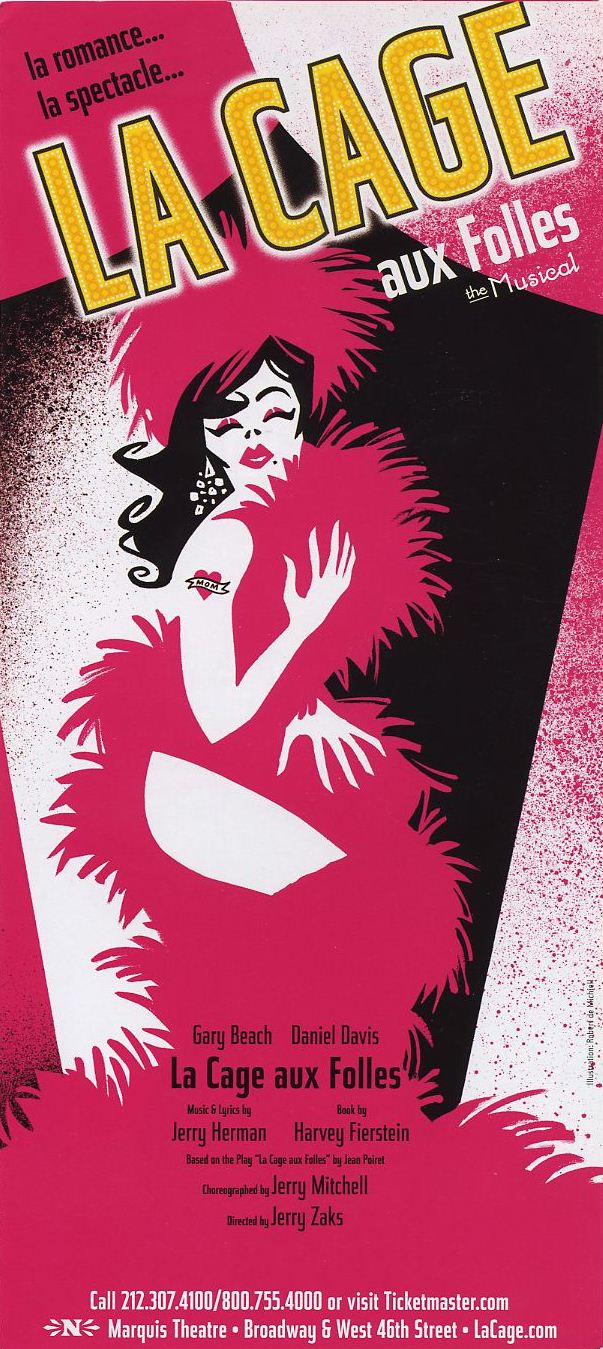
Version 8
Cage aux Folles (La) (2004-12-Marquis Theatre-Broadway)
Type de série: RevivalThéâtre: Marquis Theatre (Broadway - Etats-Unis) Durée : 6 mois 2 semaines Nombre : 31 previews - 229 représentationsPremière Preview : jeudi 11 novembre 2004Première : jeudi 09 décembre 2004Dernière : dimanche 26 juin 2005Mise en scène : Jerry Zaks • Chorégraphie : Jerry Mitchell • Producteur :
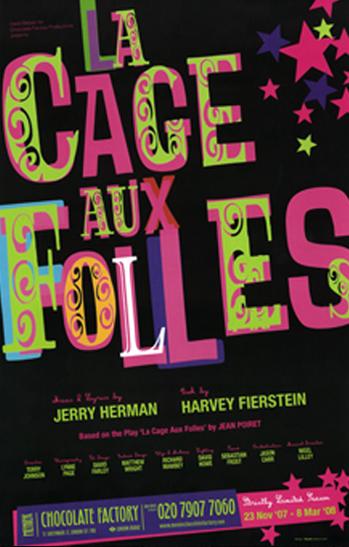
Version 9
Cage aux Folles (La) (2007-11-Chocolate Factory-Londres)
Type de série: RevivalThéâtre: Menier Chocolate Factory (Londres - Angleterre) Durée : 2 mois Nombre : Première Preview : jeudi 27 novembre 2008Première : mardi 08 janvier 2008Dernière : samedi 08 mars 2008Mise en scène : Terry Johnson • Chorégraphie : Lynn Page • Producteur : Avec : Philip Quast (Georges), Douglas Hodge (Albin) , Neil McDermott (Jean-Michel), Alicia Davies (Anne), Ian Mitchell (Edouard Dindon), Una Stubbs (Mme Dindon), Tara Hugo (Jacqueline), Jason Pennycooke (Jacob)Commentaires : This scaled-down fringe production opened to a mostly positive press, with rave notices for Douglas Hodge’s performance. After a total sell-out season, it was revived at the Playhouse in October for what was announced as a strictly limited 12 week run.
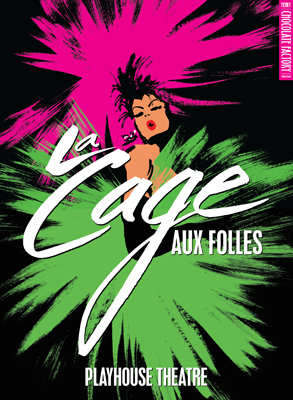
Version 10
Cage aux Folles (La) (2008-10-Playhouse Theatre-Londres)
Type de série: RevivalThéâtre: Playhouse Theatre (Londres - Angleterre) Durée : 1 an 2 mois Nombre : 8 previews - 517 représentationsPremière Preview : lundi 20 octobre 2008Première : jeudi 30 octobre 2008Dernière : samedi 02 janvier 2010Mise en scène : Terry Johnson • Chorégraphie : Gillian Lynne • Producteur : Avec : Denis Lawson (Georges), Douglas Hodge (Albin), Stuart Neil (Jean-Michel), Alicia Davies (Anne), Ian Mitchell (Edouard Dindon), Paula Wilcox (Mme Dindon), Tracie Bennett (Jacqueline), Jason Pennycooke (Jacob)Commentaires : After a total sell-out season at the Menier Chocolate Factory, it was revived at the Playhouse in October for what was announced as a strictly limited 12 week run. There were some cast changes for this transfer, significantly with Denis Lawson as Georges. This transfer was hugely successful so the three months was extended, and in order to boost the box office and cope with a series of extensions, the leading roles were regularly re-cast every three months. In January 2009 the replacements were Graham Norton (Albin) and Steven Pacey (Georges); in May Roger Allam played Albin and Philip Quast reprised his original role as Georges; in September John Barrowman and Simon Burke played Albin and Georges respectively; and for the final months Douglas Hodge and Denis Lawson returned to end what had been a triumphant run. It finally closed on January 2nd 2010. The production won an Olivier Award for Best Musical Revival and Douglas Hodge won the Best Actor Award.Commentaires longs: Un énorme succès … mérité.Presse : MICHAEL BILLINGTON for THE GUARDIAN says, "It may not be a great musical, but it is still a showbiz landmark in its genial endorsement of gay marriage."
NICHOLAS DE JONGH for THE EVENING STANDARD says, "Terry Johnson’s old-fashioned, even reactionary production, which fits far more comfortably into the Playhouse than the little Chocolate Factory, scene of its January opening, reminds us just why La Cage aux Folles still exerts such a strong appeal for traditional, non-gay audiences."
LISA MARTLAND for THE STAGE says, "La Cage is still a winner more than 20 years after its original Broadway opening."
QUENTIN LETTS for THE DAILY MAIL says, " La Cage is a belter of a night out."
Sam Marlowe for THE TIMES says, "Suddenly, the West End sparkles...a production that delights."
MICHAEL COVENEY for THE INDEPENDENT says, " Fantastic revival...rich, melodic score."
CHARLES SPENCER for THE DAILY TELEGRAPH says, "This joyous show and this wonderful performance deserve every hurrah and standing ovation they receive...This is a glorious night of showbiz razzle-dazzle and emotional generosity."
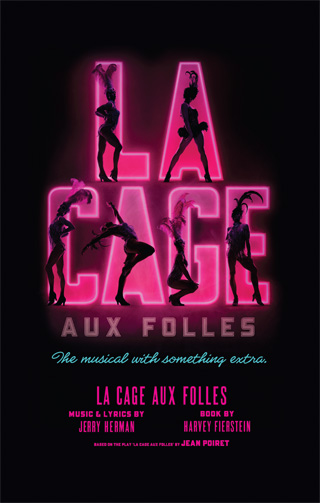
Version 11
Cage aux Folles (La) (2010-04-Longacre Theatre-Broadway)
Type de série: RevivalThéâtre: Longacre Theatre (Broadway - Etats-Unis) Durée : 1 an 1 semaine Nombre : 15 previews - 433 représentationsPremière Preview : mardi 06 avril 2010Première : dimanche 18 avril 2010Dernière : dimanche 01 mai 2011Mise en scène : Terry Johnson • Chorégraphie : Lynn Page • Producteur : Commentaires longs: Jeffrey Tambor left the production after the February 24th performance because of recent hip surgery and the stress of performing eight times a week was too physically demanding. However, the New York Post reported earlier in the day of the 24th that Tambor left because he felt 'vocally uncomfortable' in the role.
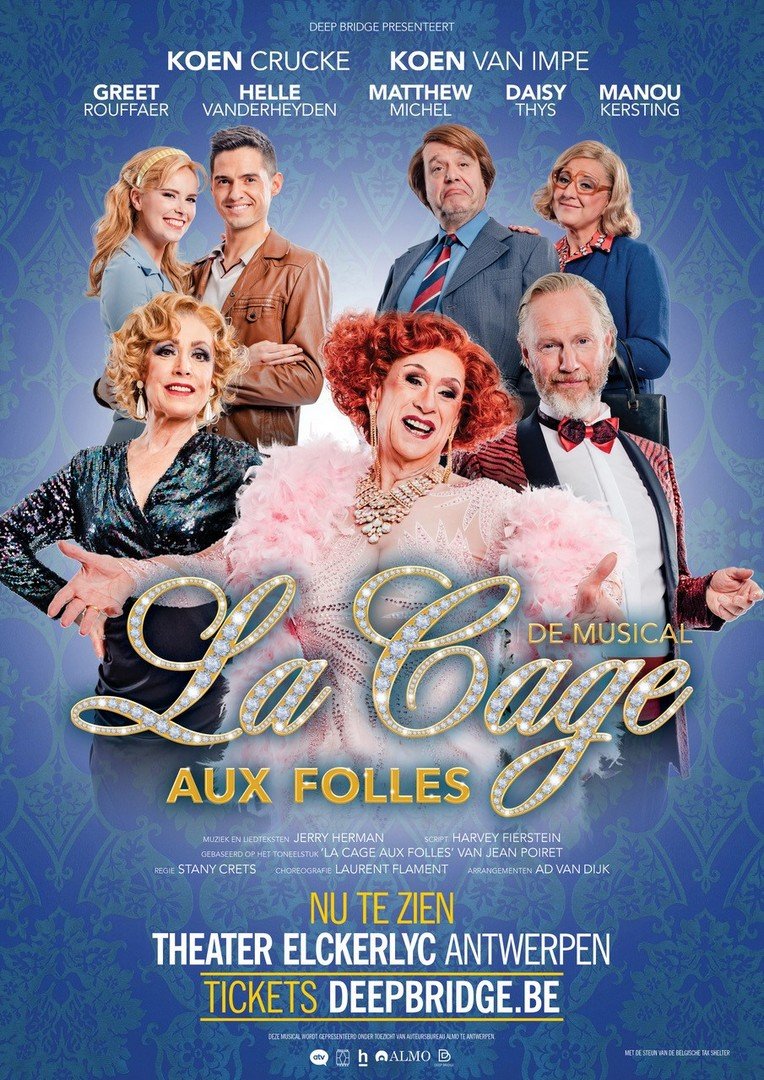
Version 12
Cage aux Folles (La) (2019-10-Belgian Tour)
Type de série: RevivalThéâtre: Belgian Tour ( - Belgique)Durée : 1 mois 3 semaines Nombre : 15 représentationsPremière Preview : mercredi 16 octobre 2019Première : mercredi 16 octobre 2019Dernière : samedi 07 décembre 2019Mise en scène : Stany Crets • Chorégraphie : Producteur : Avec : Koen Crucke (Albin/Zaza), Johny Voners (Georges), Daisy Thys, Manou Kersting, Greet Rouffaer, Matthew Michel, Lotte Steven, Florian Avoux, Sven Tummeleer, Laurenz Hoorelbeke, Baptiste Vuylsteke, Kenny Verelst, Yannick Dijck, Rowan Kievits, Bart Aerts, Leo-Alexander Hewitt, Helle Vanderheyden, Oonagh Jacobs, Jervin Weckx, Floris Devooght.
Pas encore de video disponible pour ce spectacle
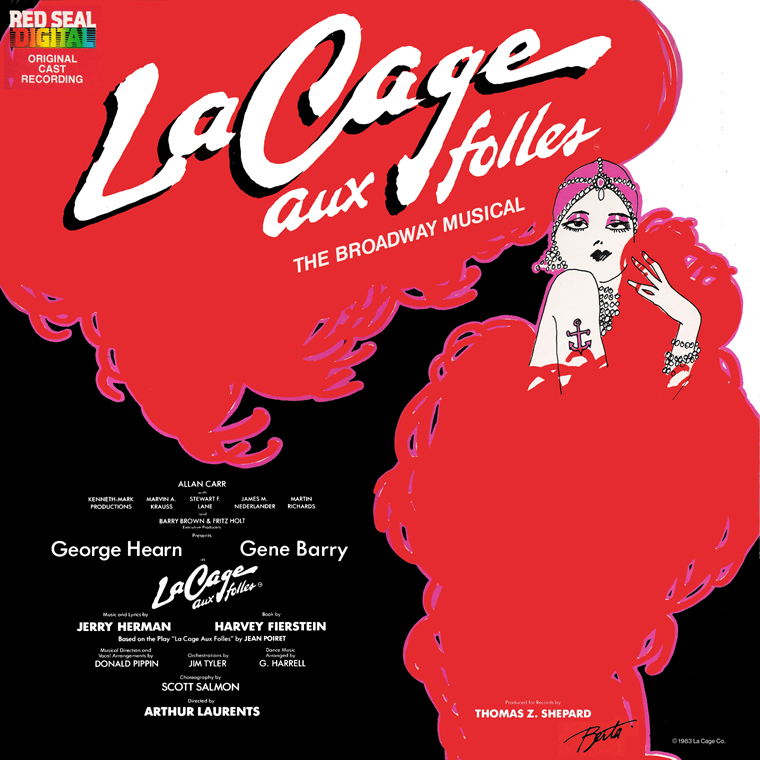
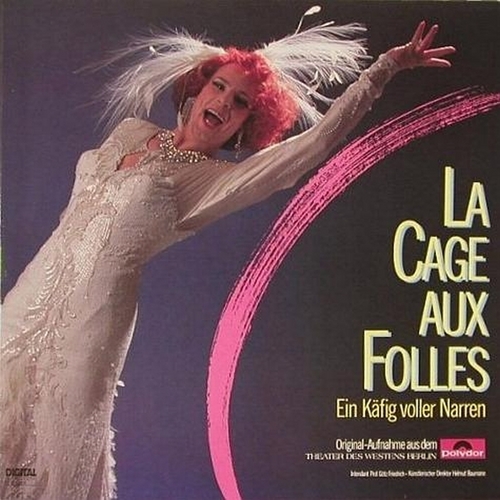
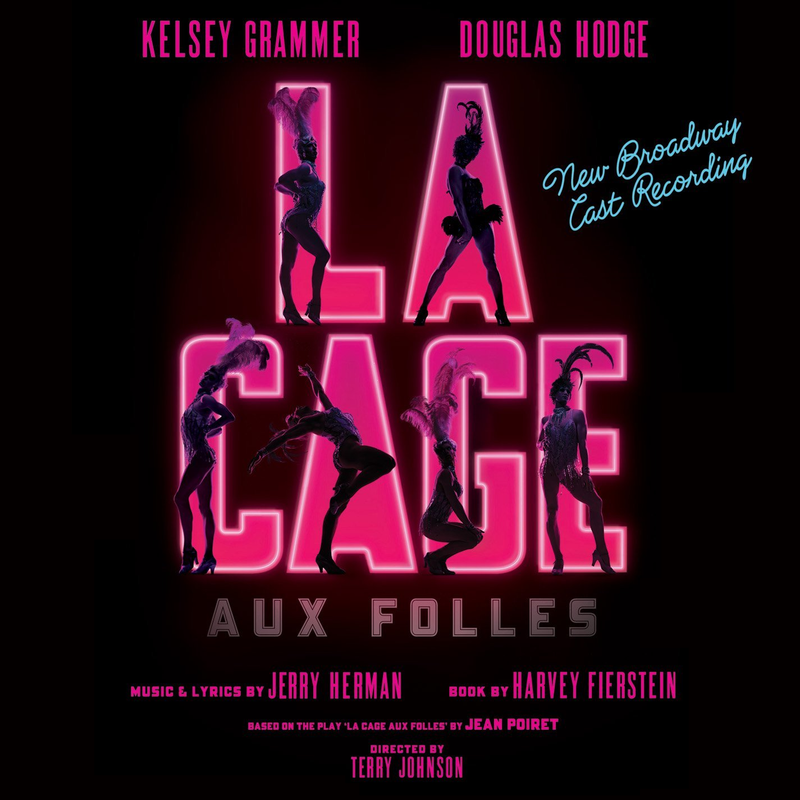

.png)
.png)




